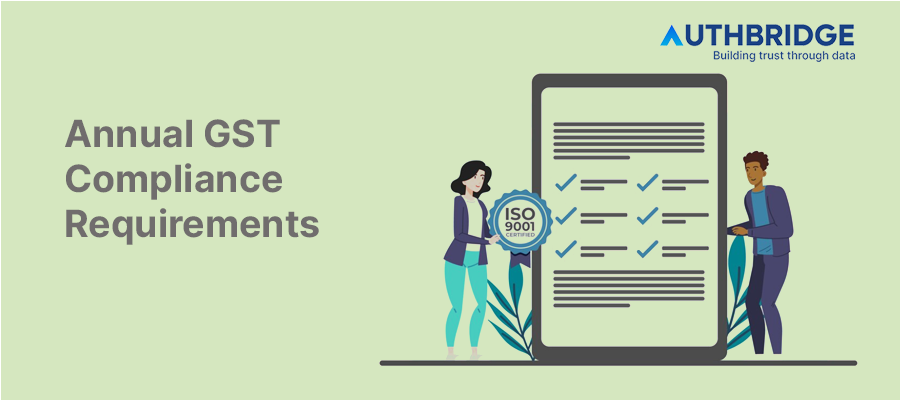GST Compliance In India

Goods and Services Tax (GST) has transformed the tax framework of India, consolidating multiple indirect taxes into a single tax system to enhance ease of doing business and increase tax compliance. Adhering to GST regulations is crucial for businesses to avoid legal penalties and ensure operational efficiency.
What is GST Compliance?
GST compliance involves adhering to the rules and regulations set forth by the GST Council and the Government of India. It includes timely filing of returns, accurate tax payments, maintaining proper records, and following all procedural requirements.
Key Aspects of GST Compliance
- Registration: Businesses must register under GST if their annual turnover exceeds the threshold limit.
- Invoicing: Issuing GST-compliant invoices with all required details.
- Returns Filing: Timely filing of GST returns, including GSTR-1, GSTR-3B, and annual returns.
- Tax Payment: Correct calculation and payment of GST.
- Record Maintenance: Keeping detailed records of all transactions.
GST Registration Requirements
Eligibility Criteria
GST registration is mandatory for businesses whose turnover exceeds the threshold limit which is currently set at INR 40 lakhs for the supply of goods and INR 20 lakhs for services. However, for northeastern and hill states, the limits are set at INR 20 lakhs and INR 10 lakhs respectively.
- Special Considerations: Entities engaged in inter-state supplies, e-commerce operators, and those required to pay tax under reverse charge also need to register for GST irrespective of turnover.
Registration Process
The GST registration process is streamlined through the GST portal. Here’s how businesses can register:
- GST Portal Access: Visit the official GST portal (gst.gov.in).
- Form Filling: Complete Form REG-01, providing necessary details such as PAN, mobile number, and email address.
- Document Submission: Upload required documents including PAN card, proof of business registration, bank account statements, and address proof.
- Verification and Approval: After submission, the application is verified by the authorities. Upon successful verification, the ARN (Application Reference Number) is issued followed by the GSTIN (Goods and Services Tax Identification Number).
Filing of GST Returns
Return Types and Deadlines
Businesses registered under GST must file various returns, such as:
- GSTR-1: Details of outward supplies, filed monthly by the 11th of the following month.
- GSTR-2A: Auto-populated draft of inward supplies made available to the recipient on the 15th of the following month.
- GSTR-3B: Summary of outward supplies and input tax credit, filed monthly by the 20th of the following month.
Filing Procedures
Filing GST returns is a critical compliance activity done through the GST portal:
- Log in to the GST Portal: Access your GST account using the credentials received during the registration process.
- Navigate to Returns Dashboard: Select the financial year and the return filing period.
- Prepare and Submit Returns: Fill in the required details and verify them before submission. The portal allows for the correction of errors before final submission.
- Payment of Tax: After submitting the returns, calculate and pay the due tax using the generated challan.
Why is GST Compliance Important?
GST compliance ensures businesses operate within the legal framework, avoid penalties, and maintain good standing with tax authorities. It also facilitates seamless input of tax credit claims and enhances the business's credibility.
Benefits of GST Compliance
- Avoidance of Penalties: Non-compliance can lead to hefty fines and legal action.
- Seamless ITC Claims: Proper compliance ensures smooth claiming of input tax credits.
- Business Credibility: Compliance enhances trust and credibility among customers and stakeholders.
- Operational Efficiency: Streamlined tax processes lead to better operational efficiency.
Steps to Ensure GST Compliance
1. GST Registration
Ensure that your business is registered under GST. The registration process involves:
- Visiting the GST portal.
- Fill out the necessary forms.
- I am submitting the required documents such as PAN, Aadhaar, and proof of business.
- Receiving the GSTIN (Goods and Services Tax Identification Number).
2. Issuing GST-Compliant Invoices
Invoices must include the following details:
- Supplier’s name, address, and GSTIN.
- Invoice number and date.
- Recipient’s name, address, and GSTIN.
- Description of goods/services.
- Quantity, value, and tax amount.
- HSN/SAC code.
3. Filing GST Returns
Regularly file the following returns:
- GSTR-1: Details of outward supplies.
- GSTR-3B: Summary return of monthly/quarterly inward and outward supplies.
- GSTR-9: Annual return.
4. Accurate Tax Payment
Calculate GST correctly and make timely payments. Use the GST portal to generate challans and pay the tax due.
5. Maintaining Records
Keep detailed records of:
- Sales and purchase invoices.
- Credit and debit notes.
- Stock registers.
- Payment vouchers.
6. Reconciliation
Regularly reconcile your accounts with GST returns to ensure accuracy and identify discrepancies.
Common Challenges In GST Compliance
- Complexity: Understanding and implementing GST rules can be complex.
- Technical Issues: Navigating the GST portal and filing returns online may pose challenges.
- Frequent Changes: Keeping up with frequent updates and changes in GST regulations.
Solutions to Overcome Challenges
- Training: Regular training for employees on GST rules and regulations.
- Technology: Using GST compliance software to automate processes.
- Professional Assistance: Hiring GST consultants or accountants.
Penalties For Non-Compliance
Non-compliance with GST regulations can result in penalties such as:
- Late Filing: Penalty of INR 100 per day (up to INR 5,000).
- Incorrect Invoicing: Penalty of up to INR 25,000.
- Non-Registration: Penalty equal to 10% of the tax due or INR 10,000, whichever is higher.
Conclusion
GST compliance is crucial for the smooth functioning of businesses in India. By understanding the requirements and adhering to them, businesses can avoid legal issues, claim input tax credits seamlessly, and maintain credibility. Regular updates and training, coupled with the use of technology, can significantly ease the compliance process.

Abhinandan Banerjee
(Associate Manager - Marketing)
Abhinandan is a dynamic Product and Content Marketer, boasting over seven years of experience in crafting impactful marketing strategies across diverse environments. Known for his strategic insights, he propels digital growth and boosts brand visibility by transforming complex ideas into compelling content that inspires action.



